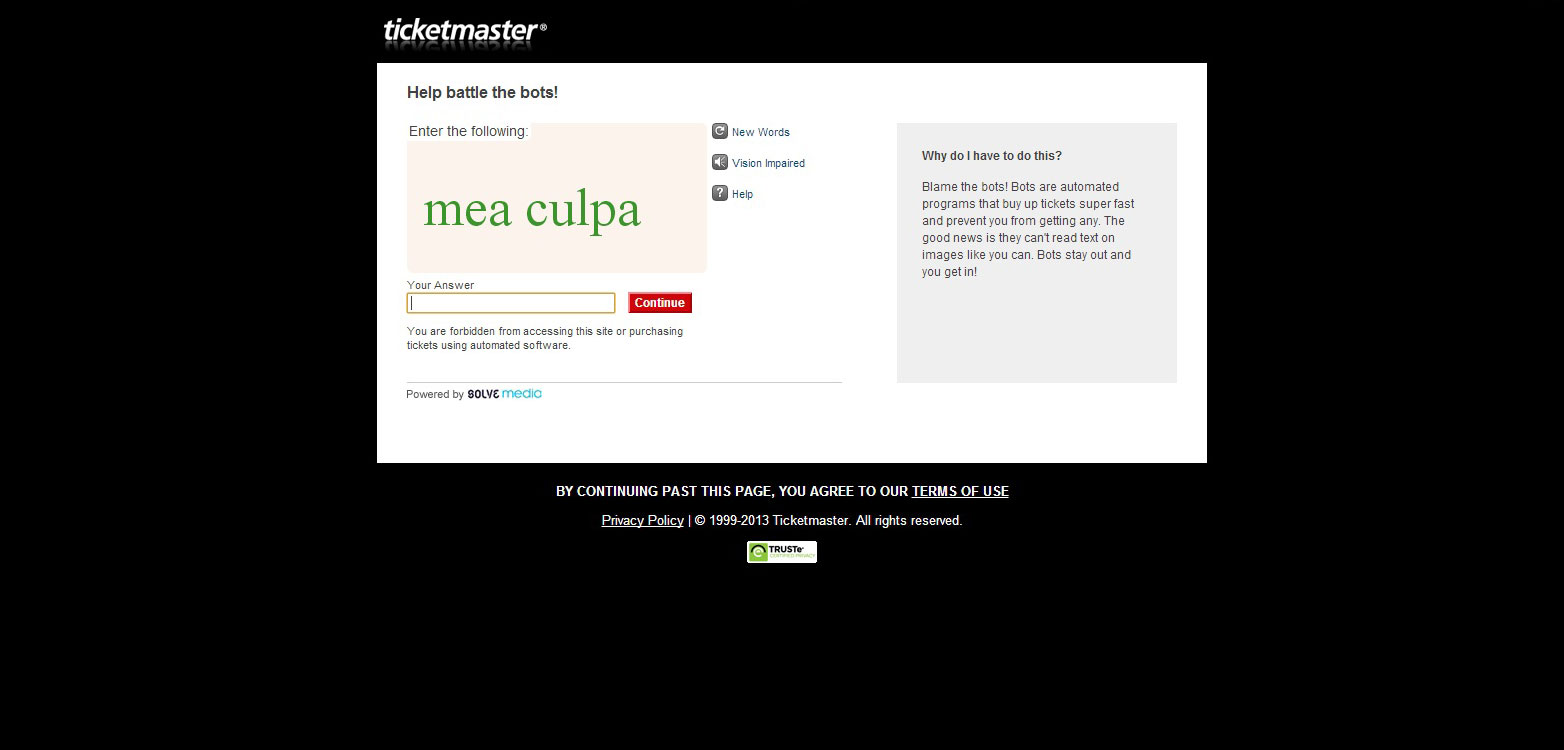
 Recently, I had the 'joy' of attempting to book tickets with Ticketmaster.co.uk and, I knew exactly what I was in for — pages to trawl through, lengthy reservation queues and a security enigma that wouldn't be out of place on 'Mastermind'.
Recently, I had the 'joy' of attempting to book tickets with Ticketmaster.co.uk and, I knew exactly what I was in for — pages to trawl through, lengthy reservation queues and a security enigma that wouldn't be out of place on 'Mastermind'.
But, thankfully I was able to breathe a sigh of relief when I found out that they were finally ditching their unnecessarily complicated, un-user friendly 'CAPTCHA' - after a fifth or sixth attempt, in my quest for tickets, I often feel like I am unsuccessfully attempting the latest MENSA conundrum. Considering their high volume of traffic, it's no wonder Ticketmaster receive so many moans and groans from their customers. With stats showing that 25% of its users get the puzzle wrong on the first attempt, it is clear that the 'CAPTCHA' has plagued the web for too long. After all, the system is in place to prove that the user is human, not to test the nation's patience, eye-sight or ability at word jumbles.
Refresh! Refresh! Ah, I'll attempt this one.
So, with frustration at the forefront of everyone's mind Ticketmaster's new 'CAPTCHA' solution generated a lot of hype. After testing it for myself I'm not really sure why. On first impressions it seems to be exactly the same concept as the previous 'CAPTCHA'. The only slight difference appears to be that I was provided with a phrase I could actually read on the second refresh rather than the sixth. I'll admit this is an improvement.
I have to wonder however, given that we are an industry obsessed with UX design, is having images that are "easier to read" really the best we can do to improve the quality of user experience?

My disappointments didn't end there. When I delved deeper into the capabilities of the new 'CAPTCHA' I discovered that Solve Media, the 'CAPTCHA' s' provider, were also incorporating advertisements into their solutions. Apparently, this is in an effort to make the user experience more 'fun' and 'engaging.' Don't get me wrong, the solution is nicer than before but, it's really just another superficial addition to make the "picture prettier" and an opportunity to generate revenue. The new 'CAPTCHA' was meant to simplify the process while maintaining security. Yet, what we now have is the potential for unnecessary user distraction.
The real worry however, is that alternative 'CAPTCHAS' (perhaps more suitable for the growing tablet generation) are being overlooked after years of text recognition ones. Designers and developers are becoming complacent, falling back on these as an easy option. Deal with the bigger issue please, they are extremely un-user friendly. But, it seems that customers have become so accustomed to the 'CAPTCHA' that, no matter how frustrating, it has inadvertently become a household sign of security and trust to users. Its absence would now unsettle users.
Don't be fooled into thinking that this is the best we can do. There are alternative methods of security being developed out there e.g. MotionCAPTCHA, visualCaptcha or The Puzzle CAPTCHA.
Try again Ticketmaster.
Do you see a captcha as a sign of security? Would you prefer to see alternate tests in use? Let us know in the comments.














